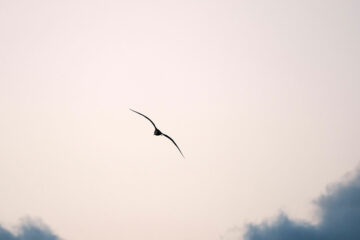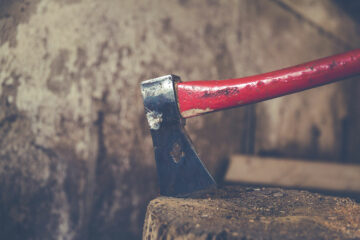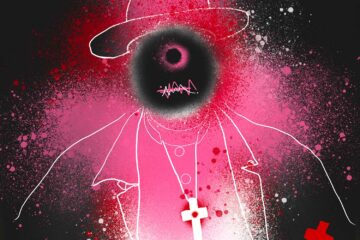Overview: In this short solo episode (ep 132), Adam Williams shares the pure gold of what we’ve been looking for and a way to get there, amid his reflections on Maya Angelou’s line, “Do the best you can until you know better. Then when you know better, do better.” (Released on podcast on Feb. 2, 2023)
Also on Apple, Spotify, Pandora, Stitcher, YouTube, Google and other players.
EP 132 SHOW NOTES, LINKS & TRANSCRIPT
Connect with Adam Williams
Humanitou on Instagram: @humanitou
About Adam
Artwork
Podcast cover art & art below: Adam Williams
Music
“Old Rope” by Joe Johnson | joejohnsonsings.com
Original Written Version
“Do the best you can until you know better,” Maya Angelou said. “Then when you know better, do better.”
In my insecure moments as a creator and sharer, I hear voices that question every effing thing I do. It’s intense and nearly constant. It’s fatiguing.
They’re the familiar critical voices I’ve known since childhood. They’re the imagined haters who fill social media comments, carelessly spreading their own pains and insecurities. They feel just so … there, everywhere … that it’s easy in my fearful ego to mistake the imagined criticism for the truth.
But I share anyway, though it feels uncomfortable and sometimes requires more of a leap than other times. Here are some thoughts on why I share anyway:
For me, sharing, e.g. via publishing writing and podcasts, is a valuable, necessary part of the creative process. I wrote about that in another blog post, “The Intrinsic Value & Vulnerability in Sharing Who We Are.”
Also, many of my blog posts don’t get their final polish until after I’ve published it, when I so clearly start seeing details I want to do differently, or mistakes I missed catching. I go back into it and make the tweaks.
To be a relatively unknown creator in the world has a huge benefit over those with fame and fortune: I don’t have to fear hitting the “Publish” button. There aren’t thousands or millions of fans, media outlets and whoever that will see it immediately.
In relative obscurity, there is space to be human and imperfect and learning. And I get to publish, and then make those final adjustments that only become visible to me in that moment, and polish off the work or learn to live with it. There is the grace to be imperfect.
I have recognized that what I publish on the blog and podcast also are forms of learning, exploring and refining thoughts out loud. Putting these ideas in public is an exercise that places more stakes on the table than writing in a journal.
There is a loose level of acceptance for unrefined free flow in journal pages. The next step up is to work with purpose for sharing publicly, subjecting my thoughts to scrutiny and potential feedback.
There is a worthy practice in being willing to use our voices, being willing to speak out and risk being wrong or imperfect. We don’t become good at things we do not practice.

Artwork by Adam Williams
If we ever hope to find strength in expressing ourselves in the world, it does not work in the long term to hide in the privacy of our journals and unexpressed thoughts, and think that in time we’ll magically become ready and fearless and thick-skinned enough to speak up for ourselves and our beliefs.
If we’re waiting for a point in time that we will know all the information and all the possible angles of thought and argument, so much so that it feels unimpeachably and irrefutably safe to speak without risk of emotional or psychological injury, we will not, and it will not.
If it’s scary now when the stakes are low, when relatively few are listening, how confident can we possibly be when we eventually do speak, after years or a lifetime of holding it in?
How skilled can we be in that moment, when we haven’t practiced, versus the inevitable and unskilled eruption that will come from the unstoppable buildup of frustration over never being heard?
No doubt, there are times for that eruption, with or without skill and practice. Langston Hughes poem, “Harlem,” comes to mind:
What happens to a dream deferred?
Does it dry up
like a raisin in the sun?
Or fester like a sore—
And then run?
Does it stink like rotten meat?
Or crust and sugar over—
like a syrupy sweet?
Maybe it just sags
like a heavy load.
Or does it explode?
But in the everyday privilege that many of us know, in which we have opportunities to use our voices and be heard, but hold back due to our insecurities, are we going to hold it in forever, hiding who we are until the regretful end?
In answering that question, maybe the true question is, “When am I going to dare to live?” And then, “Why not now? Why not me? Why not my words and my thoughts and my feelings that have value and ought to be heard and seen?”
There is no time to start learning to express ourselves like the now. It takes practice, and it takes a willingness to learn by experiment and error. And by getting comfortable standing in the fire. What does not burn away or reduce to ash in the fire is the pure gold that we’ve been looking for: total freedom. Spiritual, creative, social … total.
Being absolute and rigid and overly afraid is a prison of our own making. There are dangers in certainty and inflexibility of mind and heart. To the fool who whole-heartedly believes his ignorance is knowledge, or worse yet a weapon, and to those they unfortunately affect.
I recently talked at length about faith, doubt, compassion and the dangers of certain thinking with a former decades-long Presbyterian minister, Mike Orrill, on the Looking Upstream podcast. A tremendous conversation.
To wait to know something, anything, with certainty before speaking, before writing and publishing or sharing art publicly or talking to the boss or friend or … anyone, is to wait forever. And it’s painful, and we ripple that pain. And it’s unnecessary and something we have the power to change.
We must have the courage to be imperfect, or even straight-up wrong, and have the willingness to learn from that moment. We must be courageous enough to subject ourselves to learning … and growing and doing better. It’s never done.
So I’ll end this how it started, with the same wisdom from the late poet Maya Angelou:
“Do the best you can until you know better. Then when you know better, do better.”
[Podcast outro comments added … ]
I’m Adam Williams. Thanks for listening to the Humanitou podcast. And thanks for however you might be sharing it with others, through word of mouth, social media, and by rating and commenting on it on Spotify, Apple Podcasts or wherever.
Remember, we’re all Humanitou. I think all we’ve got to do is stay true to that. Stay true, stay human. Stay Humanitou.


